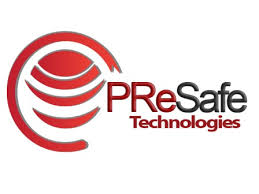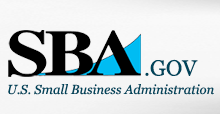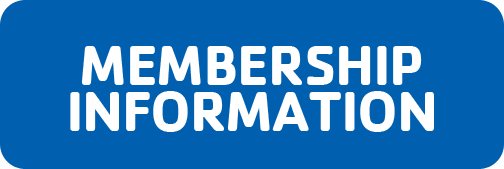Washington, D.C. – October 31, 2013 – The Government Technology & Services Coalition (GTSC) announced today the addition of Paul Benda, former director of the Homeland Security Advanced Research Projects Agency (HSARPA) at the U.S. Department of Homeland Security (DHS) and partner and chief technology officer at GSIS; Jason McNamara, former chief of staff, Federal Emergency Management Agency (FEMA) and vice president of Obsidian Analysis, Inc.; and Molly Wilkinson, former general counsel to the Homeland Security and Government Affairs Committee in the United States Senate and senior vice president at Regions Financial Corporation, to its prestigious panel of Strategic Advisors.
“GTSC is honored to attract the support and intellectual capital of such distinguished and accomplished leaders in our community. Their advice, counsel and understanding of our federal partners’ missions contributes to a better working relationship between the public and private sector by increasing our mutual understanding,” said Kristina Tanasichuk, CEO of GTSC.
“After years at HSARPA, I am excited to join GTSC to help small, innovative firms understand the federal process, the keys to a successful strategy and why many firms with great ideas fail,” said Benda. As director of HSARPA, Benda managed a budget of nearly $450 million within the Science and Technology Directorate (S&T) of DHS. As chief of staff for S&T, Benda oversaw staffing, organizational plans, budget execution, and strategic plan development and implementation. Previously at the Pentagon Force Protection Agency, Benda oversaw the design, implementation, testing and commissioning of all security systems on the Pentagon Reservation and started his federal civilian career as a program manager at the Defense Advanced Research Projects Agency (DARPA).
“At FEMA we worked with numerous small businesses on response and recovery efforts and to improve communications, alert systems and other vital FEMA missions; I look forward to continuing to improve their success and increase their understanding of how the public and private sector can work together to further advance our nation’s preparedness, response and recovery,” said McNamara.
McNamara directly impacted FEMA’s transition toward emphasizing survivor outcomes and incorporation of the Whole Community in delivering response and recovery solutions while serving as administrator Craig Fugate’s chief of staff. His successes include developing the Sandy Recovery Improvement Act and the five-year reauthorization of the national flood insurance program. McNamara now directs the disaster recovery program area as well as services for state and local clients for Obsidian.
“I am excited and energized to re-engage with the small business community-particularly on behalf of the homeland and national security mission. I learned from years on the Hill and in the SBA that small companies really do provide a fresh take on age-old problems and that their insights can lead to tremendous cost savings and efficiencies,” said Wilkinson.
During her time on the Homeland Security and Government Affairs Committee in the United States Senate, Wilkinson played a critical role in getting the Federal Acquisition Institute Improvement Act through the committee. Before working on Capitol Hill, she spent time as chief of staff at the U.S. Small Business Administration (SBA), chief acquisition officer at the U.S. General Services Administration and associate deputy secretary for management at the U.S. Department of Labor. Her broad range of experience includes homeland security legislation, acquisition management and government relations. In 2009, she was awarded as a Federal 100 winner for improving SBA’s efficiency, including the Business Development Management Information System that allows small businesses to file online applications for 8(a) status.
A full list of GTSC’s board of strategic advisors, members and mentors is available at www.GTSCoalition.com.
-###-
GTSC is a nonprofit, non-partisan 501(c)(6) association of companies that create, develop and implement solutions for the federal homeland and national security sector. Our mission is two-fold: first, to provide exceptional advocacy, capacity building, partnership opportunities and marketing in the Federal security space for small and mid-sized companies. Second, to support and assist our government partners achieve their critical missions with the highest integrity; best and most innovative technologies; and results-based, quality products and services to prevent, protect against, mitigate, respond to and recover from any terrorist attack or natural disaster. For more information on these mentors and the Government Technology & Services Coalition, please visit www.GTSCoalition.com.
For more information, please contact Kristina Tanasichuk, CEO, by phone or email: 703-201-7198 or [email protected].
Download this and other press releases here.






 Entering a new market is a formidable and demanding endeavor, particularly for an emerging business in a recovering economy. It includes building new relationships and alliances and fundamentally understanding how business is conducted in order to be competitive and win business. As an emerging business, it is crucial to remain efficient and effective during each step. Our due diligence led us to the U.S. Small Business Administration (SBA) 8(a) program as an efficient and effective approach for entering the Federal marketplace.
Entering a new market is a formidable and demanding endeavor, particularly for an emerging business in a recovering economy. It includes building new relationships and alliances and fundamentally understanding how business is conducted in order to be competitive and win business. As an emerging business, it is crucial to remain efficient and effective during each step. Our due diligence led us to the U.S. Small Business Administration (SBA) 8(a) program as an efficient and effective approach for entering the Federal marketplace.
 If you’re a small business owner interested in making the federal government one of your next customers, you can benefit greatly from certifying your business first. Many government agencies require that a certain percentage of its work is set aside for small businesses (and woman-owned, veteran-owned and more), so certifying your business can help you successfully compete for government contracts. These resources can help:
If you’re a small business owner interested in making the federal government one of your next customers, you can benefit greatly from certifying your business first. Many government agencies require that a certain percentage of its work is set aside for small businesses (and woman-owned, veteran-owned and more), so certifying your business can help you successfully compete for government contracts. These resources can help:
